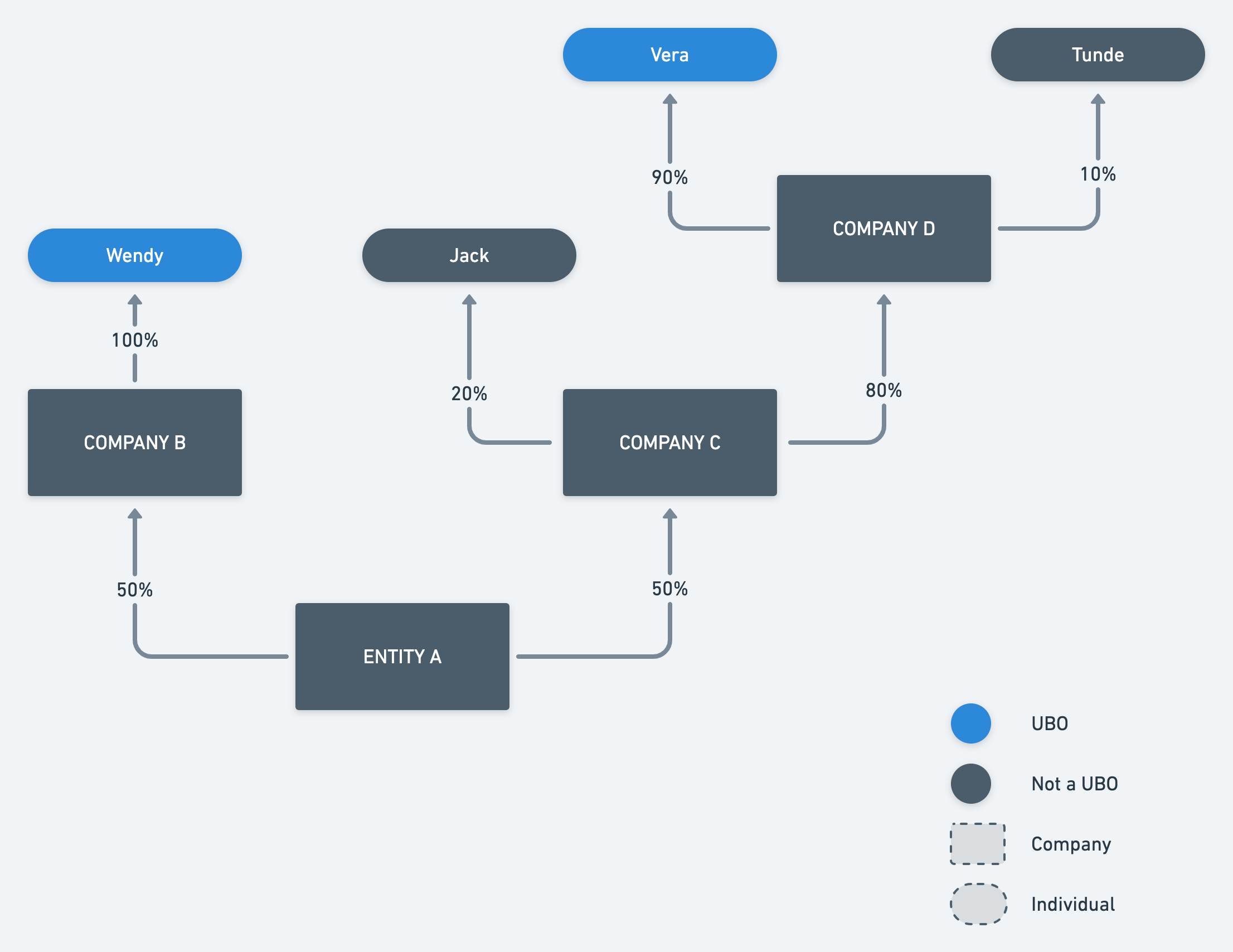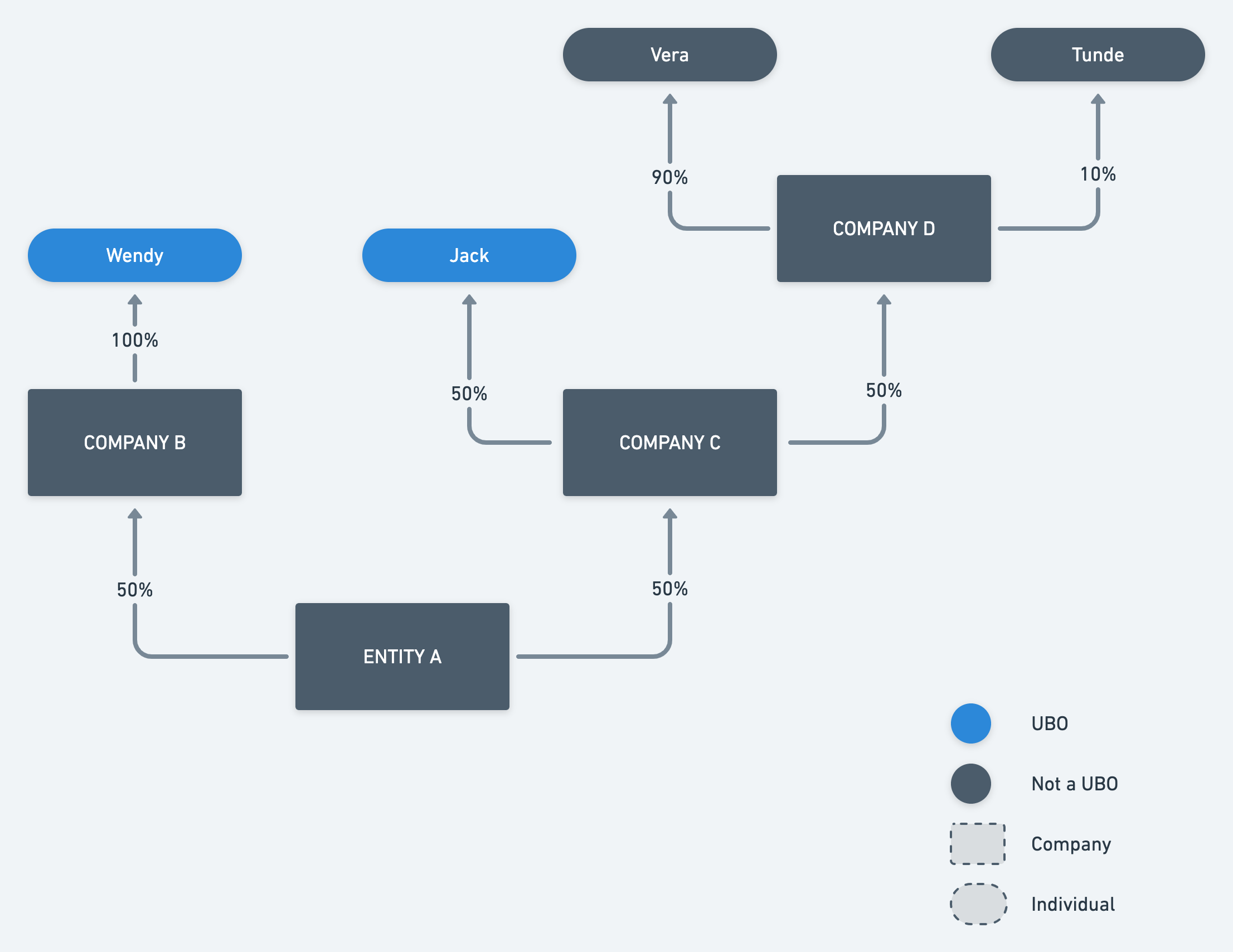An ultimate beneficial owner (UBO) is a person who directly or indirectly owns 25% or more of a company.
For example, if Person A owns 50% of Business A, and Business A owns 50% of business B, then Person A is both a beneficial owner of Business A, and Business B. Person A is a beneficial owner of Business A because they own more than 25% of the business, and a beneficial owner of Business B because they indirectly own 25% of Business B (50% of Business B's 50% stake in Business A is 25%).
A beneficial owner can also be any individual who is considered to “exercise significant control” over the company such as the CEO, COO and so on.
For higher risk businesses, the ultimate beneficial owner is a person who directly or indirectly owns 5% or more of a company. There is a lower threshold to meet due to the nature of the company’s activities and additional due diligence may be required.
Here are some further illustrations to explain this:
Scenario 1:

In the scenario above, both Wendy and Vera are Ultimate Beneficiary Owners (UBO) of Entity A because they indirectly own over 25% of Entity A.
Wendy owns 100% of Company B and because Company B owns 50% of Entity A, Wendy owns 50% of Entity A (100% x 50% = 50%)
Jack, on the other hand, owns only 20% percent of Company C, and even though Company C owns 50% of Entity A, Jack's indirect share of Entity A is only 10% (20% x 50% = 10%) which is insufficient to make him a UBO of Entity A.
Vera is a UBO because she indirectly owns 36% of Entity A (90% x 80% x 50% = 36%).
Scenario 2:

In Scenario 2, Wendy is still a UBO of Entity A because she completely owns Company B, which owns 50% of Entity A.
Tunde cannot possibly be a UBO of Entity A because he indirectly owns only 2.5% of Entity A (10% x 50% x 50%), and UBOs are individuals who indirectly or directly own 25% or more of a Company. Jack, in this case, indirectly owns exactly 25% of Entity A (50% x 50% = 25%), making him a UBO of Entity A.

Comments
0 comments
Article is closed for comments.